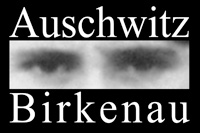




Diarrhea
(German: Durchfall)
A symptom of the starvation sickness from which a majority of Auschwitz prisoners suffered. It was caused by a significant drop in the level of protein and other nutrients in the organism, as well as the presence of toxins resulting from tissue breakdown. These toxins, in turn, caused inflammatory‑ischemic changes in the bowel, resulting in difficulties in retaining feces. Prisoners suffering from diarrhea had to relieve themselves numerous times throughout the day, including working hours. This exposed them to harassment by SS men and prisoner functionaries all the more so when, unable to relieve themselves in time, they went around befouled and reeking. Nor could unfriendly reactions from fellow prisoners be avoided. Because anti‑diarrheal medication—charcoal or tannalbin tablets—were regulated by SS doctors in the camp hospital, sufferers tried to treat themselves by several days of strict fasting or by consuming charred bread or pieces of charred wood. If the diarrhea could not be stopped, the destruction of the organism occurred quickly, leading to the Muselmann state and, ultimately, death.
